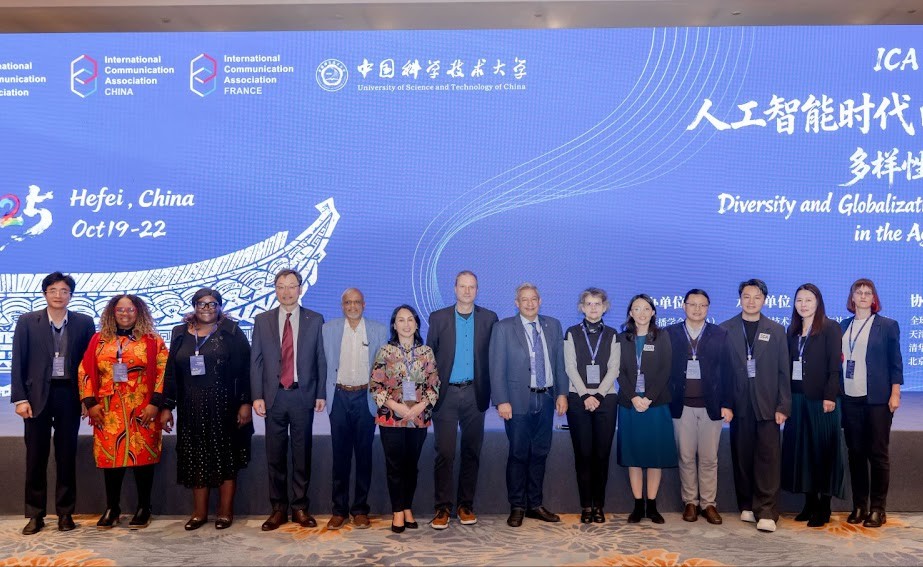AI to Transform Global Communication: SCILa Participates in ICA Regional Conference in China
Olessia Koltsova, Director of the Social and Cognitive Informatics Laboratory (SCILa), took part as an invited speaker at the Regional Conference of the International Communication Association (ICA), held at Hefei University of Science and Technology in China

lessia Koltsova, Director of the Social and Cognitive Informatics Laboratory (SCILa), took part as an invited speaker at the Regional Conference of the International Communication Association (ICA), held at Hefei University of Science and Technology in China.
The event brought together communication scholars from across the globe, including participants from Australia, Indonesia, France, Kenya, Nigeria, Hong Kong, India, Russia, and China. Co-hosted by the Chinese and French ICA chapters, the conference addressed a wide range of topics, with a particular focus on the globalization of communication research and the impact of artificial intelligence (AI) on communication and society. Olessia Koltsova joined a panel discussion on “The Future of Communication in the Age of AI.”
“Among all forms of AI, it is conversational models that will most profoundly transform the structure of communication—and, consequently, the very fabric of society,” noted Koltsova.

Director of the Social and Cognitive Informatics Laboratory (SCILa)
Conversational AI is already emerging not merely as another communication channel, but as a new type of social actor—actively participating in knowledge co-creation, decision-making, and consensus-building. In time, such systems may evolve into digital twins—‘better versions of ourselves’ that, informed by our preferences, beliefs, and limitations, will help co-develop improved decisions, including those guiding our interactions with others. This will mark the advent of a truly AI-assisted society.
During the conference, new professional connections were established with representatives from India, Indonesia, and China, opening prospects for future collaborative projects in communication and AI research.
